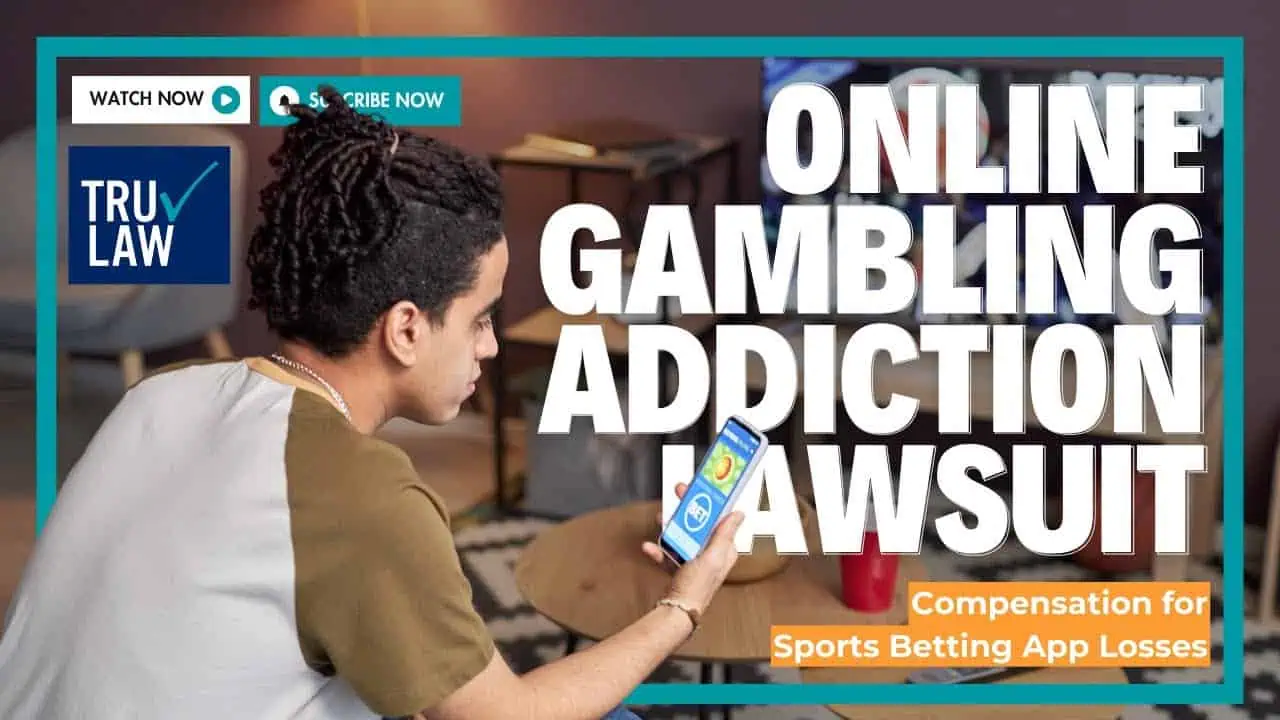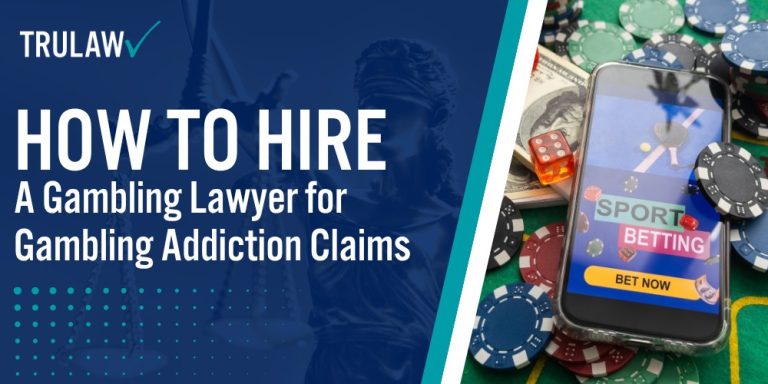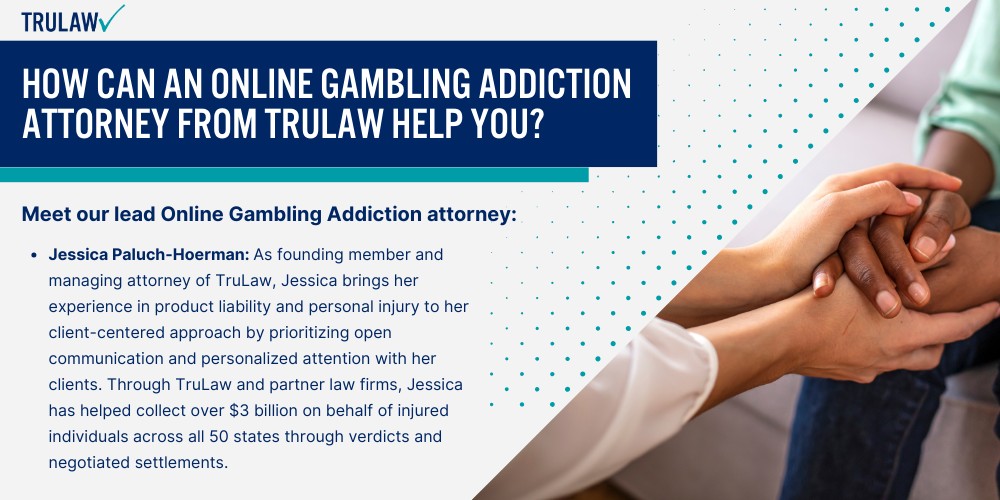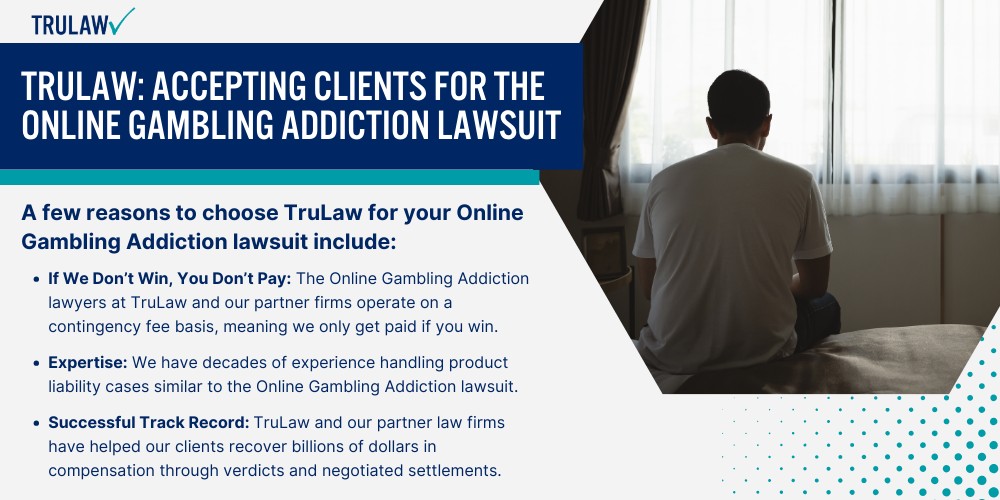The legalization of online gaming and sports betting following the 2018 Supreme Court decision in Murphy v. NCAA opened significant business opportunities for mobile gambling platforms backed by investors across the United States.
What was initially marketed as safe, regulated entertainment has led to thousands of individuals developing gambling disorders that stripped them of wealth, financial security and mental well-being.
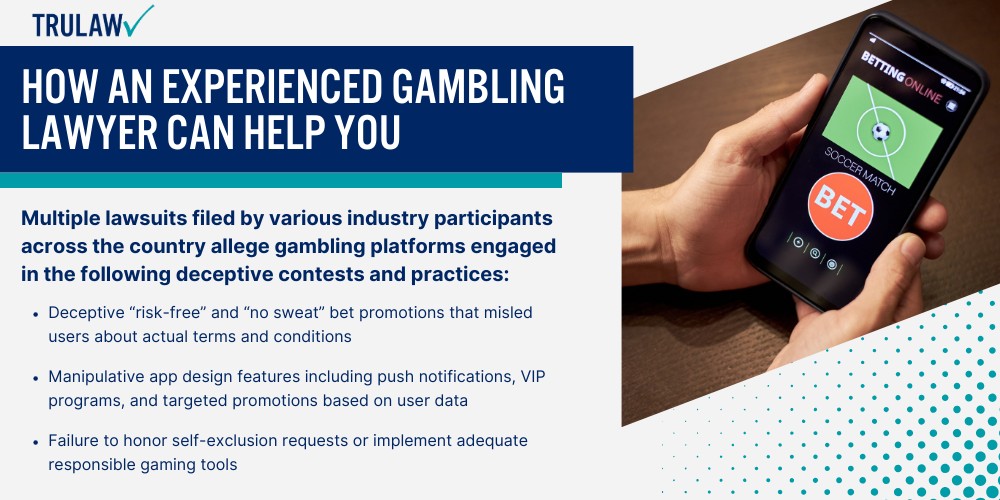
According to the Siena College Research Institute study (conducted in January 2025), when sports betting and poker are conducted on computers and mobile devices – the rate of disordered gambling reaches as high as 16%, with another 13% of online sports bettors showing signs of compulsive gambling.
On this page, we’ll discuss the rise of online gambling addiction litigation, gaming law legal theories being used in these cases, and why specialized legal expertise is essential for successful outcomes.
The Rise of Online Gambling Addiction Litigation
Major gambling platform executives currently face litigation centered on allegations that they deliberately designed their products to foster addiction while failing to implement adequate safeguards.
The City of Baltimore’s April 2025 lawsuit against DraftKings and FanDuel represents a significant milestone as the first legal challenge brought by a U.S. city against online sportsbooks since PASPA’s repeal.
Maryland’s own data from the University of Maryland’s Center of Excellence on Problem Gambling found that over 20% of online sports bettors in the state show signs of disordered gambling – almost double the rate of traditional bettors.
Multiple lawsuits filed by various industry participants across the country allege gambling platforms engaged in the following deceptive contests and practices:
- Deceptive “risk-free” and “no sweat” bet promotions that misled users about actual terms and conditions
- Manipulative app design features including push notifications, VIP programs, and targeted promotions based on user data
- Failure to honor self-exclusion requests or implement adequate responsible gaming tools
- Continued marketing to individuals who attempted to close their accounts or reported gambling problems
- Use of personal betting data to identify vulnerable users and encourage increased wagering
Regulatory enforcement actions have documented systematic failures in responsible gaming regulations and protections.
The Massachusetts Gaming Commission’s July 2025 fine of $450,000 against DraftKings for accepting illegal credit card-funded bets marked the state’s largest sports betting penalty.
Connecticut reached a $3 million settlement deal with DraftKings in 2025 over misleading marketing practices related to deposit match bonuses with hidden requirements.
If you or a loved one has experienced financial losses from online gambling addiction, you may be eligible to seek compensation.
Contact TruLaw using the chat on this page to receive an instant case evaluation and determine whether you qualify to join others in filing an online gambling addiction lawsuit today.
Legal Theories in Gambling Addiction Cases
Gambling addiction lawsuits employ multiple legal theories to establish that betting platforms bear responsibility for harms suffered by users who developed compulsive gambling disorders.
These claims focus on deliberate corporate conduct and systematic failures to implement adequate protections rather than attempting to hold companies liable for users’ voluntary choices.
Consumer protection violations form the foundation of many claims, arguing that platforms engaged in unfair and deceptive trade practices through misleading promotions and marketing.
A Massachusetts state court case denied defendants’ motion to dismiss after the court determined that more information was needed to assess whether app designs and promotional language were deceptive enough to trigger state consumer protection laws.
When apps advertise “risk-free” bets but bury conditions in fine print requiring users to wager promotional credits multiple times before withdrawal, courts may find these practices violate state consumer protection statutes.
Negligence claims assert that gambling companies breached their duty of care by failing to implement adequate safeguards despite knowing the addictive potential of their products.
Evidence that helps establish what reasonable safety measures should have been in place includes (but is not limited to):
- Internal company documents;
- Regulatory fines regarding license violations; and
- Expert testimony from specialists with international masters degrees in addiction psychology.
The American Psychiatric Association classified gambling disorder in the DSM-5 in 2013, meaning companies cannot credibly claim ignorance of addiction risks when designing their platforms.
Product liability theories treat gambling apps and their intellectual property protections as defective products when their design incorporates features specifically intended to maximize user engagement through psychological manipulation.
For example, methods designed to encourage continued betting include (but are not limited to):
- Dark patterns;
- Endless scroll features incorporating proprietary intellectual property algorithms;
- Celebratory sounds and animations for wins; and
- Targeted promotions.
Lawsuits filed in New Jersey have alleged violations of the state’s Consumer Fraud Act by engaging in “unconscionable commercial practices” and negligence claims arguing defendants owed a duty of care to avoid foreseeable harm.
Why Gambling Addiction Cases Require Specialized Legal Expertise
Gambling addiction lawsuits present unique challenges that distinguish them from typical personal injury disputes and sweepstakes-related cases.
The legal landscape remains in flux as courts grapple with how to apply traditional legal doctrines to digital platforms that fall between regulated casino gambling and unregulated social gaming.
App developers and defendants deploy sophisticated legal strategies similar to those used in corporate transactions, including (but not limited to):
- Arbitration clauses buried in terms of service;
- Arguments about personal responsibility and assumption of risk; and
- Claims that federal or state law preempts consumer protection actions.
Successfully prosecuting these cases requires a team of attorneys with specific experience in mass tort litigation, consumer protection law, and complex product liability claims.
Recognized qualified gaming lawyers and gambling addiction attorneys must possess several critical capabilities:
- Understanding regulatory compliance requirements, the psychological mechanisms of behavioral addiction, and the technical aspects of app design that exploit those vulnerabilities
- Resources to conduct thorough discovery, due diligence, and fact verification, and access to expert witnesses possessing knowledge in fields ranging from addiction psychology to software engineering
- Financial capacity and employment of experienced teams to take on well-funded corporate defendants who will fight aggressively to avoid liability
- Experience defeating arbitration clauses and possessing in depth understanding of other procedural barriers companies use to avoid accountability
- Track record of coordinating with co-counsel across multiple jurisdictions to share resources and evidence in mass tort litigation
Litigation strategies employed by international masters of consumer protection law have drawn comparisons between sports betting lawsuits and decades of tobacco litigation, noting that changing attitudes toward addiction may impact how courts view corporate responsibility.
Many successful gambling addiction lawyers with strong reputation work within established mass tort litigation networks where multiple firms pool resources and coordinate strategy.
This collaborative approach allows individual attorneys to leverage the collective professional expertise and financial capacity of larger groups while maintaining personal relationships with their clients and building their reputation.
If you’ve developed gambling disorder from platforms like DraftKings or FanDuel and suffered substantial financial losses, you may be eligible to seek compensation.
Contact TruLaw using the chat on this page to receive an instant case evaluation and determine whether you qualify to join others in filing a gambling addiction lawsuit today.
